1492 | Christopher Columbus discovers the Americas and begins a period of European colonization. |
1492 | Spain expells Jews. |
1565 | Spanish establish permanent settlement in St. Augustine, Florida. |
1607 | English immigrants arrive in Virginia and establish the first permanent English colony at Jamestown. |
1608 | Calvins Case (England) sets forth basic principles of British citizenship. |
1619 | The first African Americans arrive in Jamestown. The further arrival of women signals that the colony will be permanent. |
1620 | Pilgrims arrive at Plymouth Rock, Massachusetts; adopt Mayflower Compact. |
1626 | New York founded. |
1633 | Maryland founded. |
1636 | Connecticut founded. |
1638 | New Hampshire founded. |
1638 | Delaware founded. |
1641 | Massachusetts adopts its Body of Liberties, which makes provisions for noncitizens. |
1641 | First Jewish immigrants arrive in North America after Portuguese persecution in Brazil. |
1653 | North Carolina founded |
1663 | South Carolina founded. |
1664 | New Jersey founded. |
1682 | William Penn founds Pennsylvania. |
1689 | The Glorious Revolution brings William and Mary to power in England. |
1732 | Georgia founded. |
1740 | The Plantation, or Naturalization Act, officially an act for naturalizing such foreign Protestants and others therein mentioned as are settled or shall settle in any of His Majestys Colonies in America, passed by the British Parliament, allowed Protestant aliens residing in the American colonies to become citizens after seven years of continued residency. |
17541763 | The French and Indian War results in British acquisition of the French colony in Canada. |
1755 | Benjamin Franklin authors an essay in which he expresses concern over the failure of German immigrants to adopt the English language. |
1755 | French Acadians are expelled from Nova Scotia and settle in Louisiana. |
1758 | Emel Vattel writes his Law of Nations , which emphasizes the need for citizen consent. |
1776 | The United States declares its independence of Great Britain. |
1781 | The Articles of Confederation, written by the Second Continental Congress, goes into effect. It excludes vagabonds from citizenship. |
1782 | J. Hector St. John Crvecoeur publishes his Letters from an American Farmer. |
1783 | The Treaty of Paris ends the war between the United States and Britain and recognizes US independence. |
1787 | Fifty-five delegates, some of whom were immigrants, meet in Philadelphia and draw up a new constitution that gives greater powers to the national government, including congressional powers over naturalization. |
1789 | The new Constitution goes into effect, and George Washington is inaugurated as the first president. |
French Revolutionaries issue the Declaration of the Rights of Man and of Citizens. |
1790 | The United States adopts its first Nationality Act, which limits naturalization to whites. |
1791 | Secretary of the Treasury, Alexander Hamilton, issues his Report on Manufacturing. |
The requisite number of states ratify the first ten amendments, now known as the Bill of Rights. |
1791 | French flee to United States after slave revolt in Santo Domingo (todays Dominican Republic). |
1795 | A new Naturalization Act lengthens the time before immigrants can become citizens. |
1798 | The United States engages in a quasi-war with France. |
1798 | A Federalist Congress adopts the Alien and Sedition Acts, the former of which make it more difficult for immigrants to become naturalized citizens. |
1803 | The United States purchases the Louisiana Territory from France and guarantees citizenship to those who previously held French citizenship. |
1803 | The Supreme Court decides in Marbury v. Madison that it has the power to invalidate legislation that is inconsistent with the US Constitution. |
1807 | Congress adopts a law prohibiting further importation of slaves into the United States. |
1812 | The United States goes to war against Great Britain again (the War of 1812). |
1815 | Delegates from New England gather at the Hartford Convention and consider disunion. |
1819 | Congress adopts the Steerage Act, which provides for an accounting of incoming immigrants. |
1820 | The American Colonization Society forms with the intention of deporting African Americans. |
1820 | The Missouri Compromise tries to bridge the widening gap between North and South over slavery. |
1837 | The Supreme Court decision in City of New York v. Miln allows localities to require bonds from ship captains for arriving immigrants. |
18461847 | Potato famine in Ireland sends millions to United States. |
1848 | The United States goes to war with Mexico, which will result in the acquisition of more territory in the US Southwest. About eighty thousand Mexicans become US citizens. |
1848 | American women meet in Seneca Falls, New York, to demand the right to vote. |

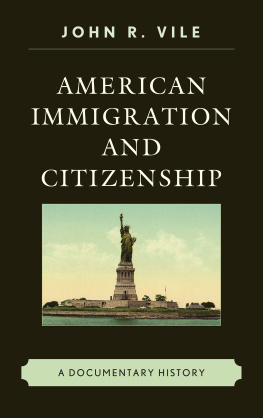
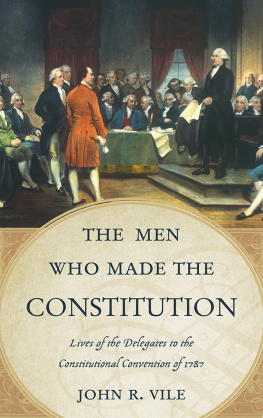
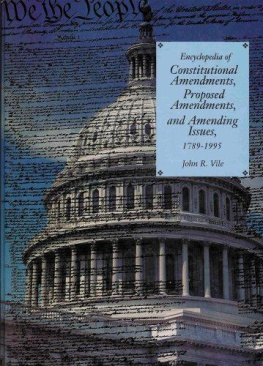

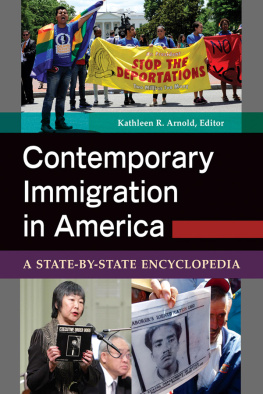
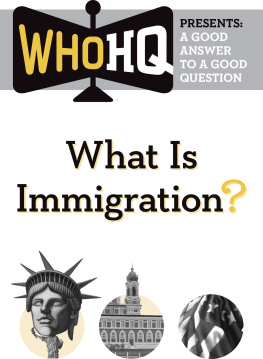
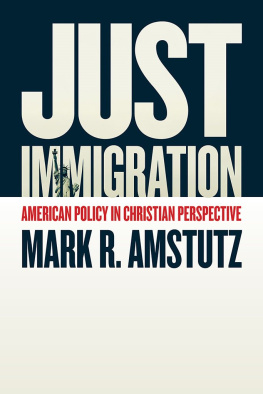
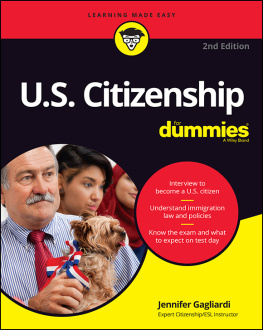
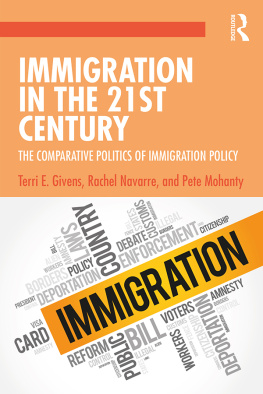
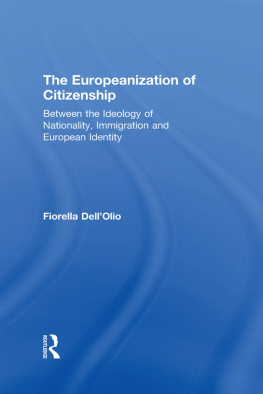
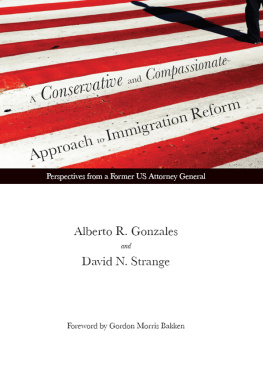
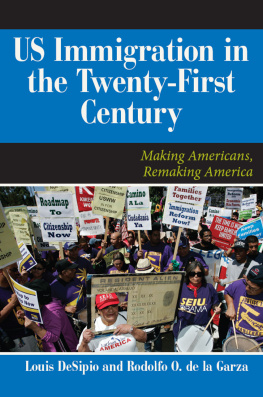
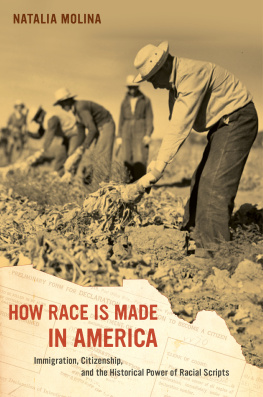
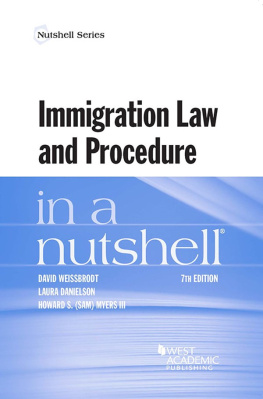
 The paper used in this publication meets the minimum requirements of American National Standard for Information SciencesPermanence of Paper for Printed Library Materials, ANSI/NISO Z39.48-1992.
The paper used in this publication meets the minimum requirements of American National Standard for Information SciencesPermanence of Paper for Printed Library Materials, ANSI/NISO Z39.48-1992.